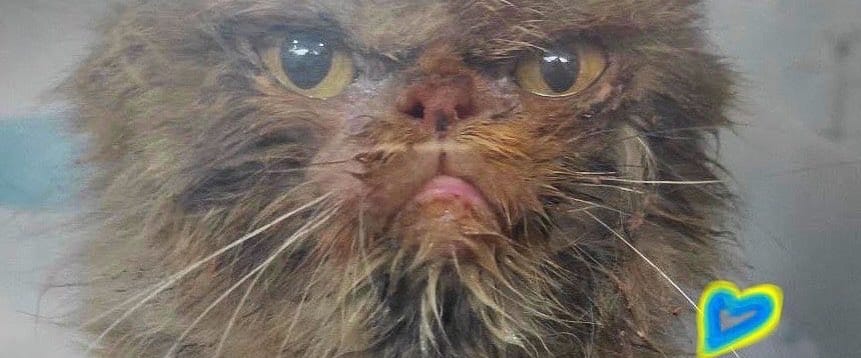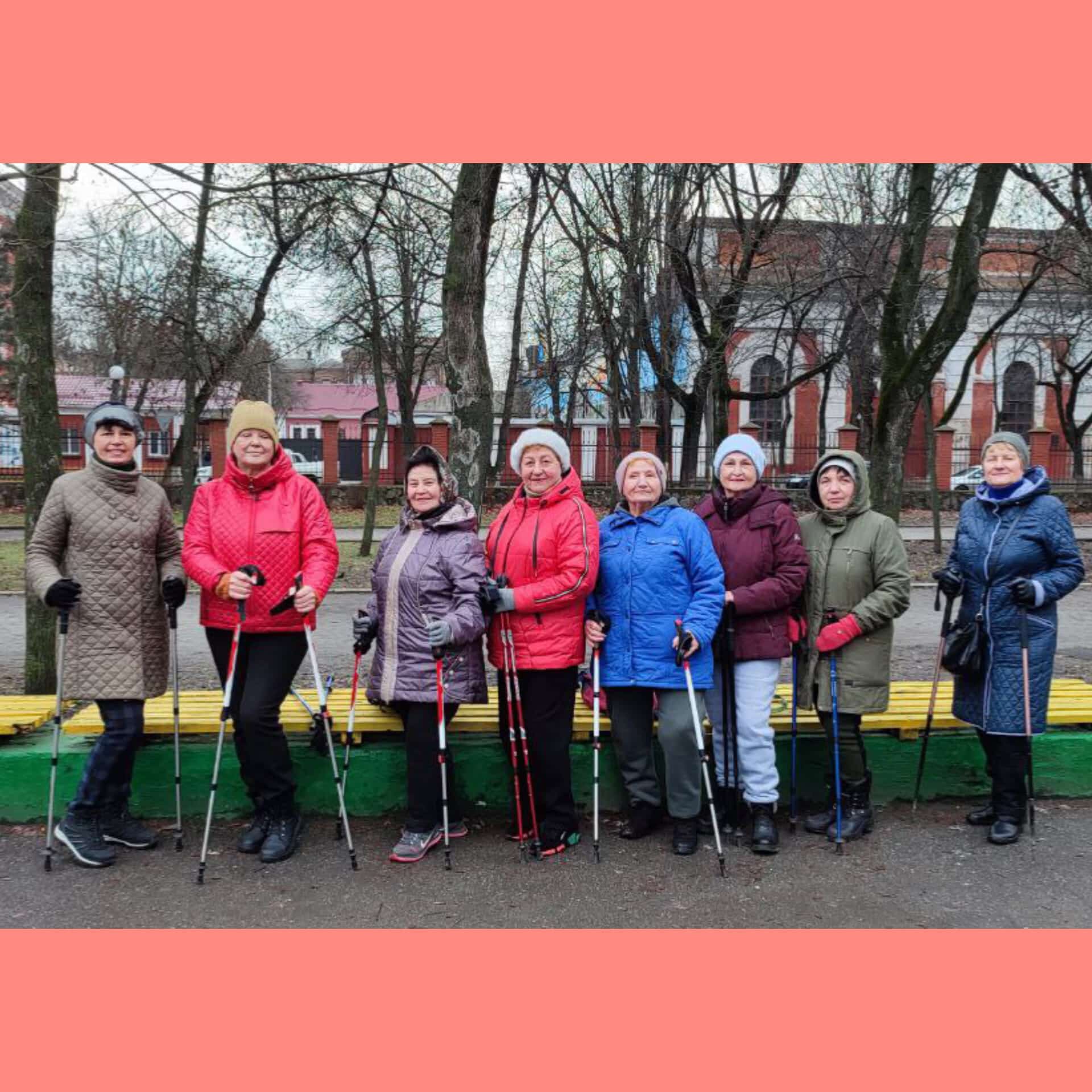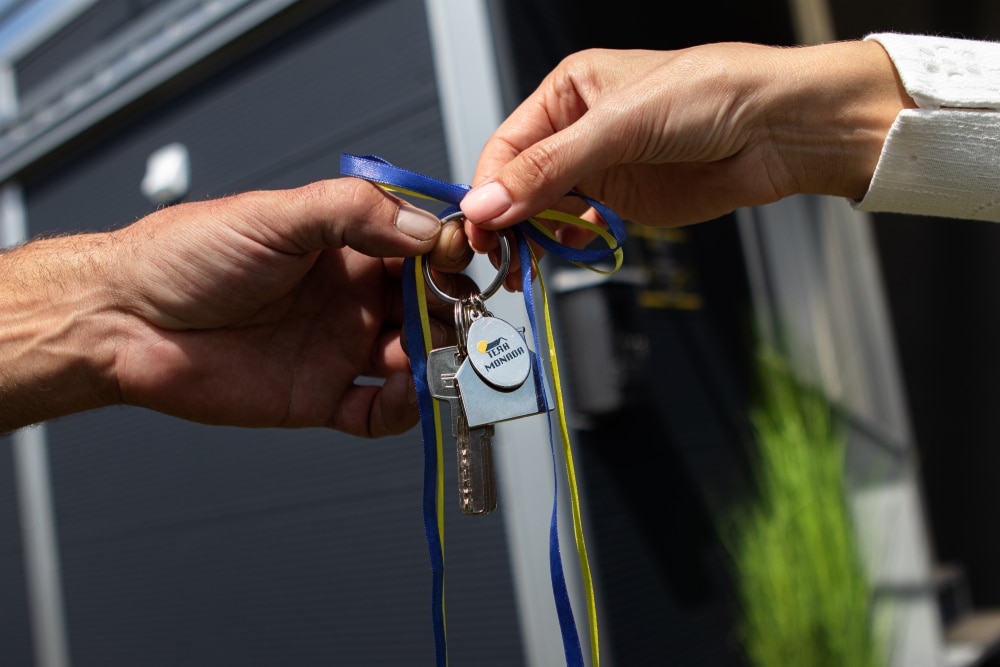The story of the cat from Borodyanka, which was hiding on the 7th floor of the ruined house, went viral. The cat’s rescue was made possible by a community of ZooPatrul volunteers who have been pulling animals out of abandoned apartments since the start of the full-scale war.
We spoke with Sonia Sadovska, co-founder and director of the communications and marketing department of ZooPatrul, about the emergence and operation of the initiative, the reasons why owners can leave their four-legged friends in the apartment, and the most striking stories of pets.
Tell us more about ZooPatrul. How was the initiative born?
The organization emerged since there is a need for it during the war. Personally, I had not been involved in this area at all before. Another co-founder, Dmytro Revnyuk, had been engaged in this topic at least partly: he had a magazine called “World of Veterinary Medicine”. I worked as a screenwriter at Film.ua production group, and on the evening of February 23, we signed a film shooting agreement with the film studio. I donated to animal welfare organizations before, but the list of animals I rescued consisted of only one cat that got run over. That is all my life-saving experience.
But on February 24, the pet owners started leaving Kyiv and its suburbs. For various reasons, some of them left their animals at home — most were sure they would return soon. As time passed, it became clear that the pets would simply die if nothing were done now. It all started when Dmytro’s acquaintances asked him to get a cat out of the apartment. He made a hole in the wall, lured the animal out through it, took a picture, and posted it on social media. The post caused a great stir. People who were really worried and trying to figure out how to get their pets out of locked apartments remotely attacked Dmytro’s messenger with requests to help their four-legged friends. Dmytro brought us all together, and that’s why our whole story begins.
Whom does your team consist of?
We have four co-founders: Dmytro Revnyuk, his wife Anna Revnyuk, me — Sonya Sadovska, and Maria Yerokhina. Each of us manages a separate department with a number of volunteers. For example, I manage the media department. We are all from the film industry in general. In general, we all work in the film industry.
At first, we had one to three patrols recruited from acquaintances. The activity was very spotty. We created pages on social networks, and I tried to tell people about us as much as possible so that they would know where to apply for help.
But requests have already reached 50-60 a day, and three patrols were not enough.
We recruited more people, and now we have 22 patrols. Usually, each consists of one driver who is also a part-time patrolman and another patrolman to help him. They either go to a specific address in the application or simply patrol the streets in the towns like Bucha or Irpin. However, people working in the departments can also participate in the trips. For example, it happens that someone goes to shoot materials for the media and returns without a photo but with two cats.
Sometimes someone goes to shoot materials for the media, and returns without a photo, but with two cats.
Where do you get funds from?
In the first weeks, absolutely everything was done at our own expense. We did not even accept anything from caring owners who were ready to thank us for saving their pets — we did not want to be confused with fraudsters. In the first period of the war, there was a boom in fake fundraisers. At that time, we did not have the support and recognition of people and interviews in the media, so we did not want people to be deceived under our name. Back then, we refueled cars, bought tools, and so on at our own expense. In about a month, the team spent about UAH 200,000. Then we realized that the war was dragging on and that more and more animals were to be rescued. Even if few were left in the apartments, more appeared on the streets.
And what changes did you decide to make?
Then we established the NGO and went to another level. Now we plan to build the largest shelter in Ukraine according to the new standard, actively operating in European countries. It will be different from the nightmarish format of “2000 prisoners who spend their whole lives in concentration camps”, which, unfortunately, can be found in domestic zoopractic. The other day we had a business trip to Berlin and Brno. We looked at two completely different institutions: a state shelter and a private shelter farm organized by a couple of zoo activists. We want to adopt this experience and make sure that the pets are in comfortable conditions in our shelter, just like at home, with enough space and attention for everyone.
But the most important thing is to make sure that pets don’t live there forever. Despite the great conditions in the shelter, our goal is to find them all loving families. The system is as follows: the pets come to the shelter and get treatment because there is often such a need, being, relatively speaking, as in a resort and undergoing rehabilitation, and we meanwhile find a family for them.
We plan to build the largest shelter in Ukraine according to the new standard, actively operating in European countries.
Now many caring people are ready to take their four-legged friends to themselves. But, of course, there are stories when people write to us: “Can we buy a pug dog, even a puppy, which has a soft chocolate hue.” In the meantime, we are taking deprived animals from the streets; some of them have shrapnel or bullet wounds. We do not hand out toys.
Sometimes among the rescued, some animals took all the awards at exhibitions, and now they need a home. However, more often, it is needed by pets that are not blue-blooded.
We constantly call: whenever you see an animal on the street, no matter how horrible its condition is, take it and write to us. We will treat it, and it will be fine, much better than on the street. If you want, then take it to yourself. If not, there will be others willing, but it is definitely necessary to save it. Whether the animal was thrown out, whether it fled from fear and got lost, or whether the owners are dead at all — unfortunately, this is also the case now, — we can not know. But we know for sure: the street is not a place for pets.
Why did you decide to save the pets left in the apartments in the first place?
Pets left at home have very limited resources for a living — just food and water left by their owners. Therefore, ways to save these animals had to be invented urgently. Sometimes it was enough to explain to people the opportunity to send their keys to the neighbors via Nova Poshta mail service to save their pets. We received calls from other cities, and one this hint was usually enough. In the beginning, we processed 800 applications, but this resulted in only 200 field trips.
We accept requests for help. It is absolutely free to do so via the form or call the hotline at + 38 099 130 3030, or write directly to our social networks to receive the link to the form.
Are the people who left the animals the ones filling out the applications?
Often they are, but there are indifferent ones who just hear or know about this problem. Therefore, we advise that if you just know about the abandoned pet, first send this information in the house chat in messenger. Maybe one of the neighbors is present and can make a request. We then immediately get to work. Of course, we need the consent of the owner to saw the door. If a neighbor has submitted a request, then we contact him, find the owner, and negotiate. The most important thing is to find out about the problem. It’s not so important who will report: the owner, neighbor, or the cat will call from the balcony.
Have you ever contacted an owner who declined your help and refused to save the pet?
Unfortunately, it happens — and this was and is a big problem for us. This caused a few burnouts for those who managed this rescue process, but this is the specificity of our work. If we were, for example, a design studio, we could simply refuse to order a bad client. But not in the case of a bad owner, because our main client is locked in the apartment. We do it for him — someone who meows or barks there, suffers, and can die of hunger.
We have to come to an agreement with the owner somehow. Sometimes they agreed but showed a motivation like “get the pet out of the apartment because the corpse will stink.” Some did not allow us to make a hole in the door because they didn’t want us to crash it, offering to open and close it carefully, but we are not professional burglars. We can cut a way out for the pet if the owner doesn’t want us to enter the apartment. Another option is to cut off the hinges and then weld them back. When the owner returns, he/she can cut them off and put in a new door. Sometimes the owners themselves ask us about it if they are adequate, and the animal’s life is more important to them.
But when the owners, to put it mildly, are hard to communicate with, we sometimes had trouble even knocking the peephole out and running a tube through it to supply food and water to the abandoned pet. “If you pour water down there, the parquet will warp,” — they say. At the time, we couldn’t stand it and sometimes said, “What do you think your cat will do with your favorite sofas when he dies of starvation?”
I do not understand why to have a pet at all if it is treated as an interior decoration.
Yes, and this is a massive problem. Fortunately, people are different. There are very responsible ones who were forced to leave their four-legged friends at home by different circumstances. For example, they went on a business trip, left the pet to a neighbor, but then the war started, and he left. And today, we published a post about a boy from Mariupol who threw himself over a cat to get him out of the city. These cases show how different we are and how many people with big hearts we have who are capable of great deeds regardless of age. Conversely, there are many people who need to be explained that animals are not furniture or toys but a big responsibility. If you are not ready for it, better buy a good vase.
For example, today we published a post about a boy from Mariupol who threw himself over a cat to get him out of the city.
When you rescue a pet from an apartment, where does it go next?
It depends. There are adequate owners who call us, worry about this pet, and promise to take it back. So we understand that this has happened due to circumstances — then we rescue the pet and treat it, if necessary. It can wait for the owner’s return on animal transfer. We have many volunteers who are ready to provide it.
Sometimes we cover the pet’s stay in the clinic if it is in critical condition. But it happens that we are dealing with another type of rescue — for example, when the owners left, no one reported anything, and the poor cat himself called for help from the balcony. No one cared that two months had passed, and it was drinking from the toilet and eating the soil from the pots. Often the owners thought it was dead — if so, the owners can forget about their pet. In this case, we find a new home for the pet, or patrolmen often pick them. Now, patrolmen usually have 3-4 cats at home each. Sometimes we are approached directly by people who want to help. We conduct a kind of interview and based on its results we make a decision to give the pet to this person or to look for another one. The main thing is that people were adequate and that this pet was never abandoned again.
Is it often the case that animals, not humans, call you for help?
Yes, they call, for example, sitting on the balcony and meowing. In the first days of patrolling the bombed-out cities, there were few people, so when the car arrived, local cats immediately ran to it and jumped on the bumper. They saw that people had come and sought salvation from us. As domestic pets, they got used to people giving them food and shelter.
In the first days of patrolling the bombed-out cities, there were few people, so when the car arrived, local cats immediately ran to it and jumped on the bumper.
In addition, animals feel whom they can trust. There was, for example, a shepherd who was shot and had bullet wounds. It came to the checkpoint. Once would have thought that she was shot by occupiers in camouflage — but somehow realized that there were completely different people in uniform at the checkpoints. From there we were called and given this smart animal for treatment.
What are the reasons that the owners of the left animals have? Why don’t they bring them along?
When people tell us: “Oh, I had so many things, it did not fit in the car” — well, it just does not fit in my head. For example, there was a viral post with a cat in a crib. The family had a whole zoo in the apartment: a cat, a rat, a parrot. None of them was rescued from this apartment. The owners voiced extra unconvincing excuses to us. I still do not understand what prevented them from taking animals with them? People from Mariupol take out animals under fire, and in this case, the situation was not so critical.
There was another story when a cat could not be saved. This is actually only 2 cases out of 200 when we could not help. The patrolwoman had a nervous breakdown because of this story. We tried to calm her down until three in the morning because she was in much pain, and she lets everything pass through. The patrolwoman went on call three times, and the owners did not allow her to open the door. She had never seen a locked-in cat, but she heard him begging for help through the wall. All that was agreed upon was a tube for serving food.
When the owners finally sent the keys, it was too late. The cat did not wait, and our patrolwoman took all the blame. She could have knocked the door off and saved that cat, but there is a difficult point in the formal law. It often goes against the law of morality.
We spent a long time analyzing this situation and trying to understand where we made a mistake. What is more important: the owner’s request not to knock off the door or the animal crying? Will us, knocking on these doors without consent, compromise the activities of our organization? And then no one will ever come to us, and it will kill many pets that could potentially be rescued. All these issues are very painful and still worry us.
But there are hundreds of successful cases. For example, I liked the story of the Phoenix cat.
Yes, we still don’t understand how that little one survived. This cat was saved by the founder of Pethouse, Volodymyr Kryzhanivsky. He helped us from the beginning, even when we didn’t even know who he was. At first, Volodymyr gave us perforators when there was no place to buy them because the shops were closed. Then he went on calls with us.
We felt that he cared, and the story with Phoenix happened. Journalists took a photo with a cat that was almost totally burned. It went viral, but no one took the cat after all. We did all the investigative work to find that cat and the place in the photo. Volodymyr personally went to the place and took many cats from there — and Phoenix, too. But he did not immediately recognize the cat in the photo. The furry now lives in the Pethouse office, still going through treatment, but has a thirst for life and is recovering every day.
I have heard that you are threatened with lawsuits for stealing animals…
Yes, I will explain why. We often pick up cats right on the streets — these are mostly those who were able to somehow get out of the apartments. They are in terrible condition. For example, a window shattered in a house, and a cat or dog was cut down, and then infections were added.
It happens that the animal sits on the balcony and calls for help — in this case, we also rescue it. Sometimes patrolmen are so concerned about them that they keep it to themselves. But it is clear that we have to show our work and rescued animals on social networks. When the post is actively spread, owners who have been indifferent to their pet for two months may appear out of nowhere. They demand to give the cat away and remove all posts about it because then it can be recognized by acquaintances or neighbors and think goddamn things. That is, the motivation is to save themselves and their reputation, not the animal.
When the post is actively spread, owners who have been indifferent to their pet for two months may appear out of nowhere. They demand to give the cat away and remove all posts about it because then it can be recognized by acquaintances or neighbors and think goddamn things.
Such owners begin to play the pity angle, to manipulate. But if you really can’t live without your cat, then why didn’t you take it with you? Meanwhile, the furry has been living for several weeks with a patrolman who takes him to the clinic, treats him, and pays for rehabilitation. He saved a cat, and we know he will not offend it, while the former owners left the animal to death. In this case, we do not return the saved pet. Then people often start threatening to sue. Our statement is firm — if they want to go to court, welcome. We also have much material on these cases; there is something to oppose. But we do not give away any animal unless we are sure it will be safe.
Details to support the volunteer initiative can be found on the official Facebook page.
Translated by Sveta Bakhshalieva








